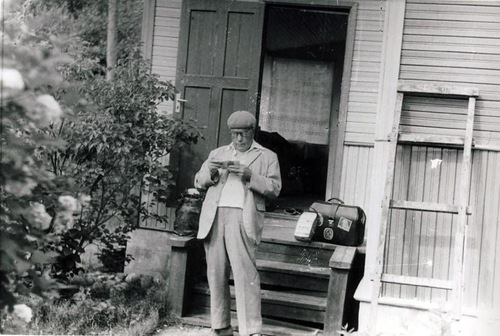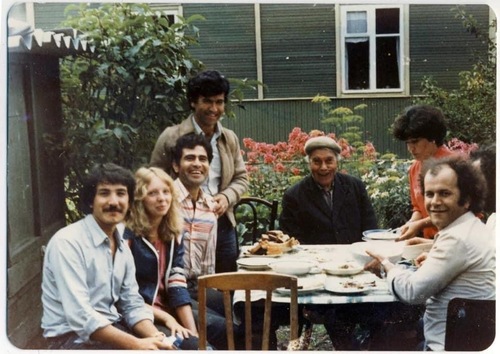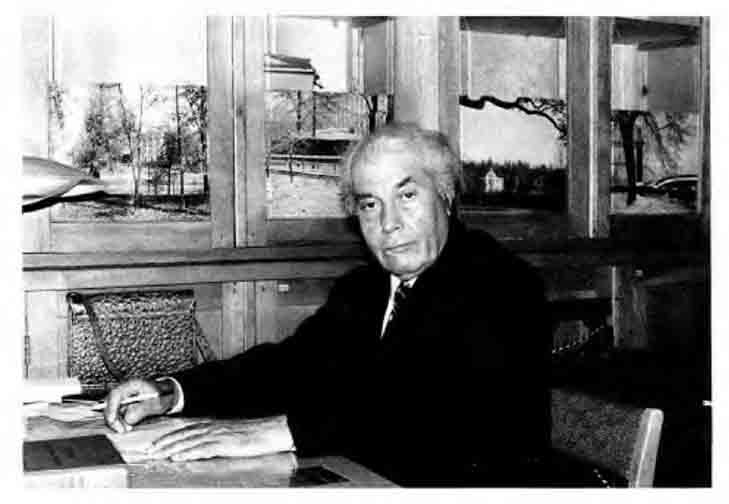Many Yazidi Kurds who fled to the Soviet Union and settled in Armenia and Georgia took advantage of the opportunities in these countries to develop their national language and culture.
Among them were several famous scholars and writers, one of whom was the famous Kurdish scholar, Qanati Kurdo. He was one of the founders of Kurdish studies in the Soviet Union.
Qanati Kurdo was born on September 12, 1909, in the village of Susiz in the Digora district of Qars to a farming family. During World War I, the Qanati Kurdo's family, like thousands of Kurdish Yezidi families in North Kurdistan, left their homes and country and went to Armenia due to the oppression of the invaders.
After the October Revolution, the Russian army withdrew from the Caucasus, the Turkish army occupied parts of Armenia, and thousands of Yezidis Kurds were massacred by the Turkish army. The family of Qanati Kurdo was also a victim of the massacre and only a few of his family survived. They were forced to migrate to Georgia and settled in Tbilisi.

Qanati Kurdo completed his primary education in local schools. In 1928, with the efforts of Arabi Shamo, the Central Committee of the Communist Party of Armenia sent eight Kurdish youths to study in Leningrad, Russia, and one of them was Qanati Kurdo.
He worked hard on the Kurdish language and knew Kurdish grammar and writing very well. At that time, he showed his intelligence and in addition to continuing his studies at the university, he became a teacher of Kurdish at the Faculty of Labor.
After completing his higher education, Qanati Kurdo stayed at the university with the permission of the president and researched the Kurdish language.
When Germany invaded the Soviet Union in 1941, Qanati Kurdo volunteered as commander of an artillery unit and remained on the battlefield until the end of the war, receiving several medals. After the war, he became a professor of Kurdish at Leningrad University. He introduced students such as Margarita Rudenko, Ruslan Sabolov, and Zara Ali Yuspova to the Kurdish Language, who later became great Kurdish scholars.

In the same years, Qanati Kurdo worked at the Institute of Anthropological Information and later became an associate of the Institute of Oriental Studies.
The pen of Qanati Kurdo was very rich, publishing about 85 books and scientific discourses. Most of his works were on Kurdish studies. Several articles on the Kurdish language issue have also been published in the newspaper Reya Taza.
In 1936, the book "Grammatica of Kurdish Language or Kurt" by Qanati Kurdo was published in Kurdish in Yerevan. Kurdish children in Armenia and other countries of the Soviet Union learned Kurdish grammar with the book of Qanati Kurdo. Until 1985, the book was published for primary schools and grades 3 to 8.
Kurdish scholar and linguist Sukerman wrote about the book: “The success of this book is that it is written in a scientific manner. Qanati Kurdo has not only researched the Kurdish language but has also paved the way for research and learning.”

The famous poet Abdullah Pashew wrote about Qanati Kurdo: “Qanati Kurdo was one of the greatest Kurdish men, as a personality, as a scholar, and as a Kurdish nationalist.”
Qanati Kurdo did a great service to his nation and the Kurdish language. Throughout his life, he has worked to protect the interests of the Kurdish people, the Kurdish language, history, and culture.
Qanati Kurdo passed away in 1985, leaving a great legacy for his people.
Qanati Kurdo works:
- The Kurdish Language (Kurmanji Grammar) was published in 1957.
- The Kurmanji Kurdish Dictionary was published in 1960 in Russian.
- The Kurdish Sorani Dictionary was published in 1983 in Russian.
- Northern Kurmanji and Southern Kurmanji was published in 1973
- History of Kurdish Literature, Volume 1 published in 1983 and Volume 2 in 1985.
- The Kurdish Language Grammar was published in 1990.









